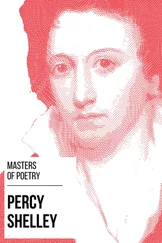Percy Brebner - Vayenne
Здесь есть возможность читать онлайн «Percy Brebner - Vayenne» — ознакомительный отрывок электронной книги совершенно бесплатно, а после прочтения отрывка купить полную версию. В некоторых случаях можно слушать аудио, скачать через торрент в формате fb2 и присутствует краткое содержание. Жанр: foreign_prose, Зарубежные любовные романы, на английском языке. Описание произведения, (предисловие) а так же отзывы посетителей доступны на портале библиотеки ЛибКат.
- Название:Vayenne
- Автор:
- Жанр:
- Год:неизвестен
- ISBN:нет данных
- Рейтинг книги:5 / 5. Голосов: 1
-
Избранное:Добавить в избранное
- Отзывы:
-
Ваша оценка:
- 100
- 1
- 2
- 3
- 4
- 5
Vayenne: краткое содержание, описание и аннотация
Предлагаем к чтению аннотацию, описание, краткое содержание или предисловие (зависит от того, что написал сам автор книги «Vayenne»). Если вы не нашли необходимую информацию о книге — напишите в комментариях, мы постараемся отыскать её.
Vayenne — читать онлайн ознакомительный отрывок
Ниже представлен текст книги, разбитый по страницам. Система сохранения места последней прочитанной страницы, позволяет с удобством читать онлайн бесплатно книгу «Vayenne», без необходимости каждый раз заново искать на чём Вы остановились. Поставьте закладку, и сможете в любой момент перейти на страницу, на которой закончили чтение.
Интервал:
Закладка:
"I hold you responsible for him," the Duke had said to Dupré. "Teach him to hate the books you love and I will find means to thank you; let him become such a one as yourself, and rest assured the reins of government will never fall into his hands when they drop from mine. The good of Montvilliers is far more to me than any son."
The Duke rode away, hoping perhaps that banishment from Vayenne would cure his son, but the lad had been at Passey ever since. How far the old Viscount attempted to turn the boy from his studies, who can say? The fact remained that he did not succeed, and Maurice de Broux – now a youth of eighteen – had found peace and contentment in the crumbling old château and was as little concerned about the world as old Dupré himself.
To-day the quiet life had suddenly been broken in upon. With early dawn a company of horsemen, a woman riding in their midst, had clattered through the village street and in at the château gates. "The Duke is dead," one serving-man presently told another, and the news spread rapidly through the village, and out into the fields beyond, where bent-backed men and women hoed. One old man there looked toward the château, and pulling off a ragged cap cried feebly, "Long live the Duke!"
In a room in the château, a room of books and students' comforts, such a room as could not have been found in the length and breadth of the Castle of Vayenne, Maurice and Mademoiselle de Liancourt had been closeted for hours. There was no more important person in Montvilliers that day than the pale scholar of Passey, yet there was no excitement in his face. That he should mourn for a father who had been little more than a stranger to him was hardly to be expected. From time to time he moved restlessly about the room, letting his companion talk, and now and again her words brought a flush to his cheek. To no one would he have listened as quietly as he did to her, for, scholar though he was by nature, he had yet something of his father in him, a temper that might burst into fury were it pressed too far. No one knew this better than Christine de Liancourt, and if any words of hers would sting him into action she would certainly speak them. For this very purpose had she come in haste to Passey. In old days she had often stood between Maurice and his father's wrath. She had prophesied that when the hour came Maurice would rise to the occasion and make a wise ruler. He was, besides, the heir, nothing could alter that, and justice, coupled with her half-formed fear of Count Felix, drove her to espouse the young Duke's cause with all the strength that was in her.
"My dear Christine, you easily get angry with me," he said presently. "Try and see the whole matter through my eyes. I am eighteen, and I have never done a single thing to fit myself for ruling Montvilliers; more shame to me, you may say, but we are not all born with a desire to rule. Ever since I came to Passey I have practically been a prisoner – a happy prisoner. I have easily forgotten how near I stood to a dukedom, and, I warrant, have been as easily forgotten. Why remember me now when I only desire to be left in peace? Believe me, as a duke I should be an utter failure, a breeder of dissension and revolution, no blessing to the land, but a curse. Let the power fall as my father wished it. Cousin Felix will make a much better duke than I."
"Have you no sense of duty?" she asked.
"Truly I think my duty to Montvilliers is to let some one else rule it," he said, with a smile.
"Duty is not a cloak a man can put off and on as he wills," Christine answered; "it is part of the man himself. He is called to fulfil certain conditions of his life, of his birth, and he cannot throw duty aside by saying he is unfitted to perform it. Are you a coward, Maurice, as well as a scholar?"
"No; I do not think I am a coward."
"It is only a coward who would not ride to Vayenne and claim his birthright."
"If we come to such close argument as that, this same birthright may be found to have little justice in it," he said quickly. "Did my father become Duke by right of birth? You know he didn't. He was a strong man, while those who should have ruled were weak. Montvilliers wanted a strong hand to guide her, and a bloodless revolution raised my father to power."
"Has Felix any greater right than you?" she asked.
"By birth, no; by capacity, yes. Let him be Duke. I will be the first to shout for him."
"Coward!" she said.
"Christine, there are bounds which even you must not pass," he said, turning a stern face to her.
She clapped her hands at his sudden anger, and stepped quickly to his side.
"There spoke a worthy Duke. I have seen the same anger rush blood-red into your father's face, and have trembled for his enemies. You cannot hide your real self; you cannot deny your real personality, even though you would."
"It lies in peace among these books of mine," he answered. "We have talked of this enough."
"Not yet. Listen, Maurice. Felix is hated by many, and if he seizes the crown, there will be bloodshed in the streets of Vayenne."
"He will be strong enough to suppress rebellion," was the answer.
"And wise enough perchance to shed blood in this peaceful Château of Passey," she went on quickly.
"Why here? Passey does not trouble itself with politics. The harvest of the fields is Passey's concern, and it is of small consequence who rules in Vayenne."
Christine laid her hand on his arm. "Think you the golden circle of sovereignty will rest easily on your cousin's brow while you live? Deny your birthright, Maurice, and then, like a coward, flee your country for safety, for I warrant you will die a violent death if you stay in it."
"I cannot think so – so much evil of Felix," he answered.
"I know him far better than you possibly can do," she said. "He let me come to you only because he is convinced that you will not come to Vayenne. He despises you, Maurice. He will use your refusal for his own purposes, and in his own manner. He will easily convince many that you are a danger to the state and that there is righteousness in judicial murder."
"Will not a kingdom satisfy him, but he must have my poor life as well?" Maurice muttered.
"Has it ever satisfied, in any age, in any history? Felix will seek to make himself secure in every possible way. Since there are many who love me, he wishes to wed me."
"Perhaps he loves you?"
"It may be," she answered, "but not as he loves himself."
"And you would marry him?"
"For the good of Montvilliers I might be persuaded."
She watched him as he walked slowly across the room. Perhaps there was a vague, half-formed desire in his heart that she should not marry his cousin. She would be less his friend if she were Felix's wife.
"Perhaps such a marriage might be good for Montvilliers," he said after a pause.
"I shall serve my country more directly by persuading you to do your duty, Maurice," she answered. "It is not only internal strife which is to be feared, but danger from without. In the past Montvilliers has fought for, and maintained, her independence, but our neighbors have not ceased to long for the possession of our fruitful soil, and our dissensions are their opportunity. Only last night a spy was caught in the streets and brought to the castle."
Maurice went to the window, and for some time stood looking down at the peaceful village he had loved so well. Here he had found happiness and the life he longed for. But beyond were the fruitful fields and green pastures of his native land, dearer to him than any other land, though he had no desire to rule it. Did it not rest with him to save this land from the enemies who had so long sought to lay a conquering hand upon it? Immediately below him, lounging in the courtyard, were some of the soldiers of Christine de Liancourt's escort, proof that there were men armed and ready to fight for their freedom as their fathers had done. Duty seemed to present itself with a new meaning to Maurice, and, as though Heaven itself would send him a messenger in this crisis of his life, just then a cassocked and hooded priest came slowly in at the gates.
Читать дальшеИнтервал:
Закладка:
Похожие книги на «Vayenne»
Представляем Вашему вниманию похожие книги на «Vayenne» списком для выбора. Мы отобрали схожую по названию и смыслу литературу в надежде предоставить читателям больше вариантов отыскать новые, интересные, ещё непрочитанные произведения.
Обсуждение, отзывы о книге «Vayenne» и просто собственные мнения читателей. Оставьте ваши комментарии, напишите, что Вы думаете о произведении, его смысле или главных героях. Укажите что конкретно понравилось, а что нет, и почему Вы так считаете.












